The just completed 76th annual
The just completed 76th annual Prague Spring International Music Festival presented more than twenty concerts, and viewers all around the world watched the on-line live broadcasts. As of today, the concerts have received a total of half a million views. Recordings of the concerts will remain available free of charge on the Prague Spring Festival website for a period of one year. Six of the concerts were given before a live audience. “I regard this year’s Prague Spring Festival as being unique in a worldwide context. There is probably no comparable festival that has offered such a generously conceived programme under the given situation,” says festival director Roman Bělor. “By their live broadcasting, these concerts were sent out into the virtual world, but that is just the beginning of their journey—they will continue to resonate online and will bear witness to how something wonderful was successfully realised in Prague during those three weeks when the world was still convulsed by the pandemic,” stated the festival director Roman Bělor emphatically, concluding: “I also think it is important that even under these difficult conditions, the festival’s international dimension was preserved.”
“This year’s Prague Spring, in spite of, or perhaps because of having taken place in its new, innovative format, has set the bar high for future years of the festival,” says the flautist Jana Semerádová, a member of the festival’s artistic council. “It’s not just that every concert was recorded, but also that each concert had a moderator—I was enchanted by the interviews with the artists, and especially with Jörg Widmann and Kiya Tabassian,” Ms. Semerádová added.
The director for the two concert broadcasts by Czech Television (the opening concert and Immersed in Stravinsky) was Adam Rezek. Another twenty concerts were streamed by the Prague Spring Festival in cooperation with Mimesis Film and the directors Jan Baset Střítežský, Petr Václav, and Adam Oľha. Introducing the concerts were the mezzo-soprano Markéta Cukrová, the actors Jan Budař, Jan Cina, and Jan Sklenář, and last but not least the moderator and singer Marek Šulc.
Next year’s Prague Spring Festival will take place from 12 May to 3 June 2022. The programme will be announced in mid-November 2021, and ticket sales will begin at the same time.
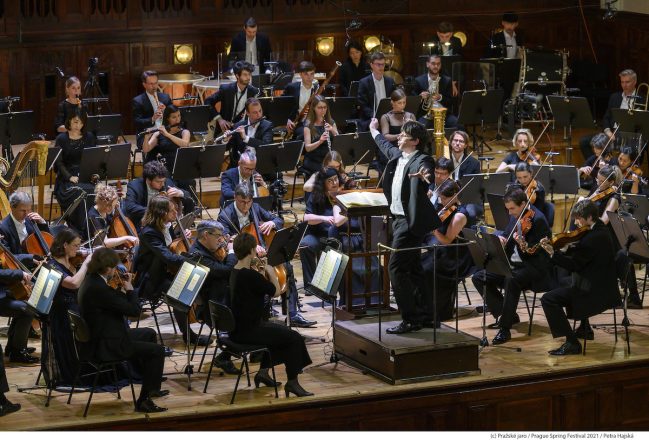
A Daring and Elegant Solution
Opening with Smetana’s Má vlast has been a fixed part of the festival’s identity since 12 May 1946. “The freer and more colourful dramaturgy after 1989 soon became apparent with the opening concert as well, as it became an international event with performances by prestigious ensembles from around the world, a counterpart to the proven approach of the Czech Philharmonic and other Czech orchestras, and the promotion of Smetana’s works in other countries. One chief example of this would be the opening concert performed by the Vienna Philharmonic with Daniel Barenboim in 2017,” recalled the festival director.
Occupying a special place among the opening concerts of this new era was the enthusiastically received student performance of Má vlast given by Jiří Bělohlávek and the Symphony Orchestra of the Prague Conservatoire in 2011 as part of the celebrations of the 200th anniversary of that great musical institution.
This year’s opening concert was similarly extraordinary. Václav Luks and the ensemble Collegium 1704, significantly augmented by players from around the world, set themselves the goal of using instruments corresponding to the period to evoke the authentic sound and style of the complete work’s premiere in 1882. “This unusual but unquestionably legitimate approach led to a number of often intense debates among members of the professional community and the lay public. The clearly prevailing opinion was that this was an important and fundamental expansion of our perspective on Smetana’s masterpiece,” said Roman Bělor, and adding to his comments was the conductor Libor Pešek: “It was a daring and elegant solution, and it succeeded. I congratulate you!”
Artist-in-Residence Jörg Widmann
“I am enormously pleased that we were able to fully realise Jörg Widmann’s residency,” says the festival programme director Josef Třeštík. He followed up a streamed appearance with the Schumann Quartett and a recital with the pianist Denis Kozhukhin with a performance of Mozart’s Clarinet Concerto with the Prague Philharmonia and Emmanuel Villaume. The audience in attendance rewarded the concert in the Rudolfinum’s Dvořák Hall with tempestuous applause, and the live broadcast of the concert also got a high number of views. “I am proud that this year’s Prague Spring Festival became the stage for Jörg Widmann’s Czech debut and that the Czech public has become acquainted with his extraordinary wealth of personality in three programmes combining Widmann’s own music with the music of the classics, to which he relates as a creative artist,” said Mr. Třeštík.
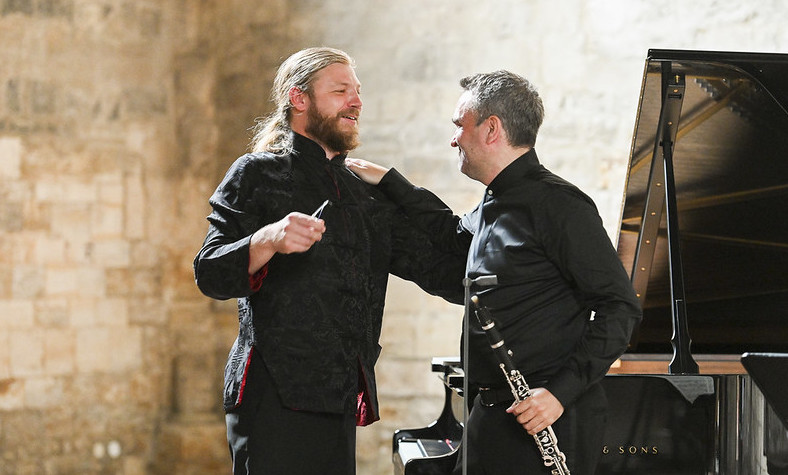
The Prague Spring Festival’s Historic First
“It is always tremendously valuable when music is brought to life by an interpreter who is closely associated with the composer,” says the festival programme director Josef Třeštík. “This is the case with Dennis Russell Davies and Philip Glass, who share the bond of many years of artistic collaboration and personal friendship.”The Czech premiere and the on-line streaming of Glass’s Symphony No. 12 with the Brno Philharmonic, the multi-genre singer Angélique Kidjo, and the organist Christian Schmitt represented one of the festival’s highlights. Thanks to the Prague Spring Festival, the first publicly available recording of this work was made, and listeners from around the world can access it on the festival website.
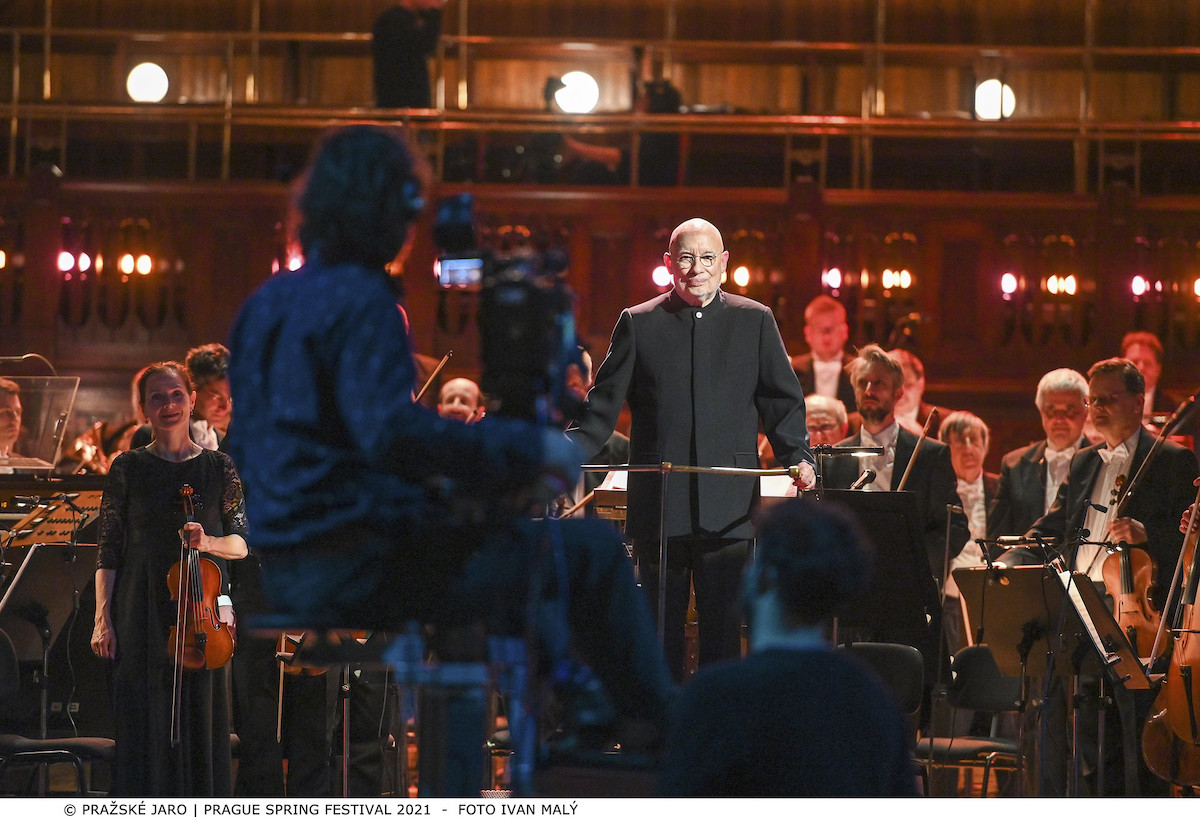
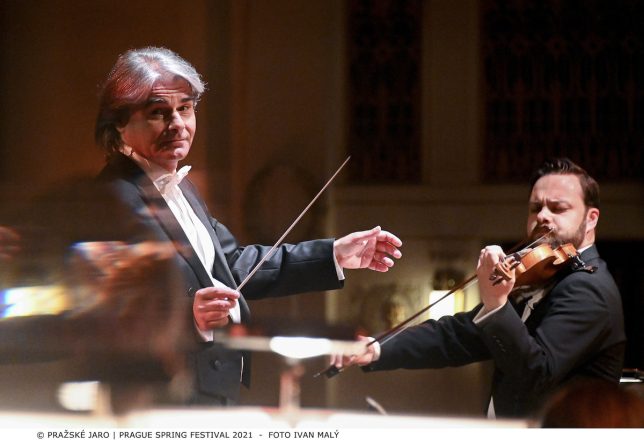
The International Dimension
For the festival, it has been tremendously important to maintain its international profile in this difficult situation and for top musicians from around the world to come to Prague. Appearing at the Prague Spring Festival for the very first time was the Romanian-Austrian conductor Ion Marin alongside the violinist Dalibor Karvay, also making his festival debut
“Ilan Volkov is a conductor known for his appetite for the less frequently performed repertoire,” says Josef Třeštík. “Among the works he performed with the Prague Radio Symphony Orchestra was the Sinfonietta by Alexander Zemlinsky—a conductor and composer closely associated with Prague.”
The Prague Spring Festival has long striven to achieve synergy between the international music competition that it holds and the festival’s main programme. This year, just such a connection was created by Garrick Ohlsson, who was the chairman of the jury and also appeared in a solo recital. “Ohlsson is one of the festival’s regular guests, but even so, he manages to surprise the Prague public whenever he returns. This year, he prepared a programme consisting entirely of 20th-century music, and for the very first time this year he performed Leoš Janáček’s Sonata,” says Josef Třeštík.
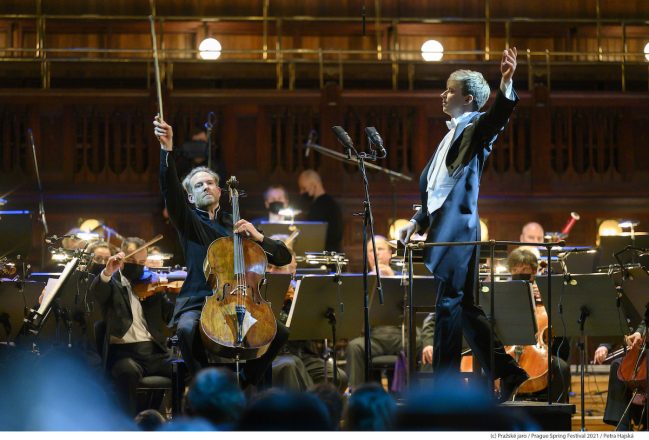
Johannes Moser is one of the most sought-after cellists, and he collaborates with the world’s most distinguished conductors. “It’s wonderful that he performed Schumann’s Cello Concerto in Prague with the young conductor František Macek. Collaborations like this always give Prague Spring Debut a new dimension,” Mr. Třeštík emphasised.
Extraordinary Projects in the Field of Early Music
Although Josquin Desprez was one of the greatest and most interesting composers of the Renaissance, his music is heard rather seldom in Prague. On the occasion of the 500th anniversary of his death, Huelgas Ensemble, one of the best vocal ensembles of its kind, prepared a programme especially for the Prague Spring Festival devoted to Josquin’s late works. The live broadcast from the Prague Crossroads venue was one of the concerts with the largest viewership abroad.
This year we are also commemorating the 400th anniversary of the execution of 27 Bohemian noblemen on Prague’s Old Town Square. One of then was Kryštofa Harant of Polžice and Bezdružice, a Renaissance man in the original sense of the word, i.e. a wonderful composer. Vojtěch Semerád, the music director of the ensemble Cappella Mariana, prepared an original programme for the Prague Spring Festival as a stylised musical documentation of Harant’s journey to Jerusalem. As the festival’s programme director Třeštík explained, “The programme presented excerpts from Harant’s own travel book read by Šaša Rašilov. Harant’s vocal polyphonic music sung by the choir Cappella Marianna was heard in dialogue with music of Arabia and Persia performed by the Canadian ensemble Constantinople—music that the Czech humanist might have heard on his journey.”
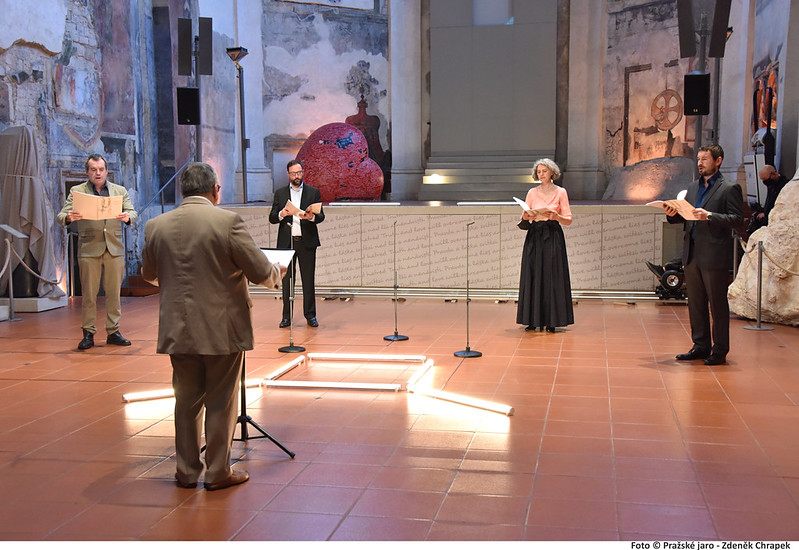
The Stravinsky Anniversary
This year’s dramaturgy commemorated the 50th anniversary of the death of one of the greatest composers of the 20th century, Igor Stravinsky. His music was heard throughout the festival, including his ballets Apollon musagète and Jeu de cartes and the suite from his ballet The Firebird. “We also offered audiences some of Stravinsky’s less frequently played works, such at the ballet Jeu de cartes, or his very diverse, inventive, and yet playful chamber music wonderfully interpreted by the Prague Philharmonia and the conductor Mariána Lejava,” says Josef Třeštík.
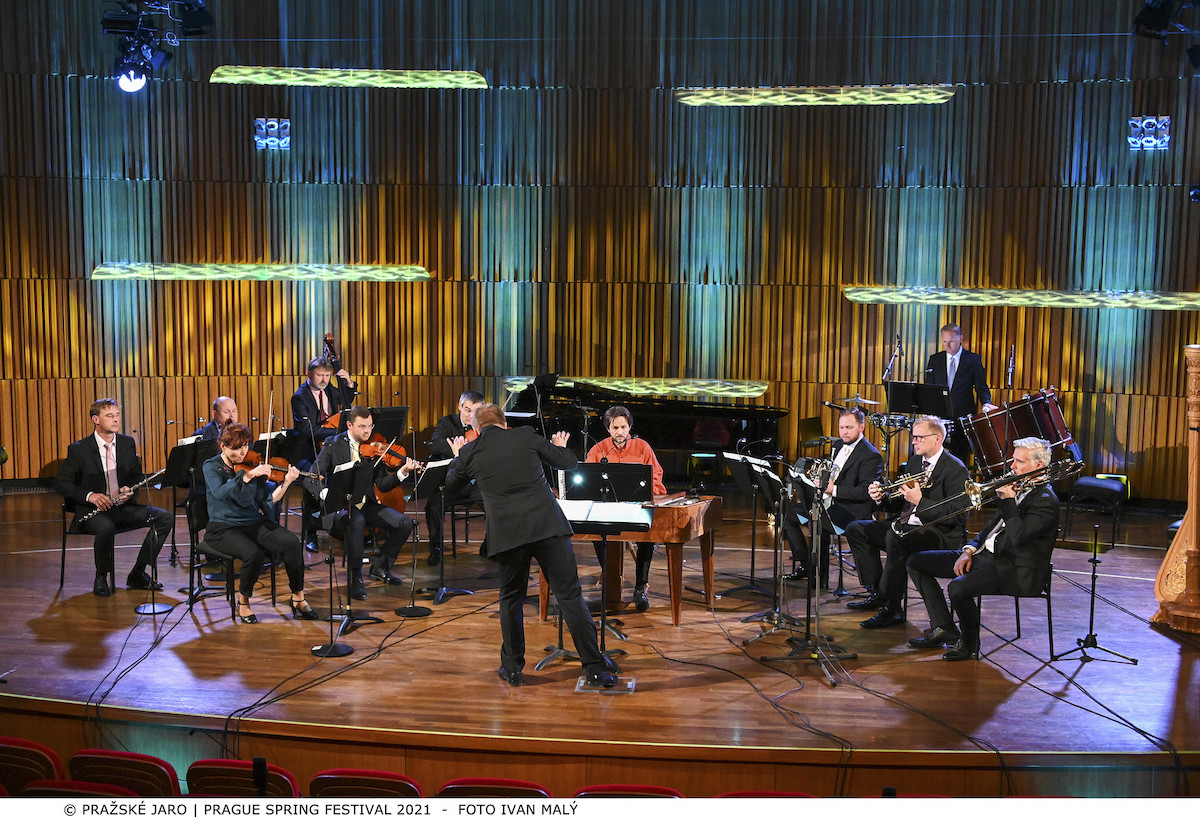
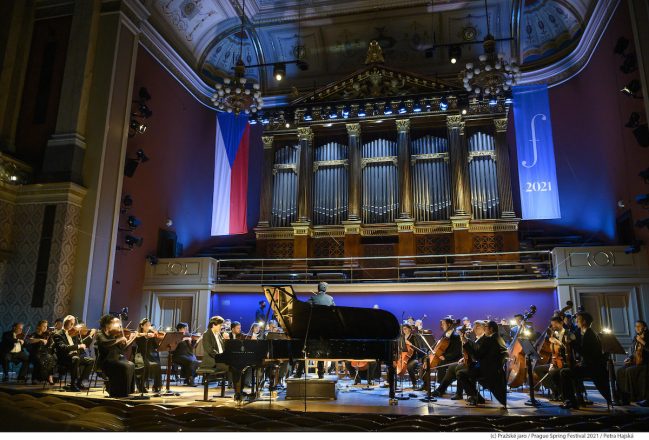
The International Music Competition
This year’s piano competition was in great demand—at a time when events were generally being cancelled, the competition was one of the few cultural bright spots, and corresponding to this was the plentiful participation of 160 pianists. “A new feature was chamber music in the competition semi-finals, and that gave us a better picture of the candidates’ quality,” said the pianist Martin Kasík, a member of the jury. “I was pleased by the quality of the Czech pianists, and those among them who are worthy of the greatest recognitionare Matouš Zukal, who won second prize, and Vojtěch Trubač, who earned an honourable mention. The winner was the Korean pianist Lee Dongha, who demonstrated his maturity especially in the competition finals. The biggest winner is the competition itself, because holding it at such a high level of quality under the present conditions was truly a remarkable achievement,” said Kasík in conclusion.
The Prague Spring Competition for string quartet was also very special. Because of the epidemic, the jury of experts evaluated the first two rounds of the competition based on video recordings. The three quartets invited to the finals, which took place on 13 May at Prague’s Dvořák Hall in the Rudolfinum, were the Arete String Quartet from South Korea, the Kukal Quartet from the Czech Republic, and the Selini Quartet from Austria. “The quality of all three finalists was high,” said the violinist Leoš Čepický, a jury member. The jury decided unanimously to award first prize to the Arete String Quartet, second prize was not awarded, and third prize was divided between the Kukal Quartet and the Selini Quartet. “I’m glad that during these uncertain times, when music was the lowest priority, Prague Spring managed to hold the quartet competition. Young people need to be faced with such challenges and to know that what they are doing is meaningful. That gives them hope for the future,” added Mr. Čepický.
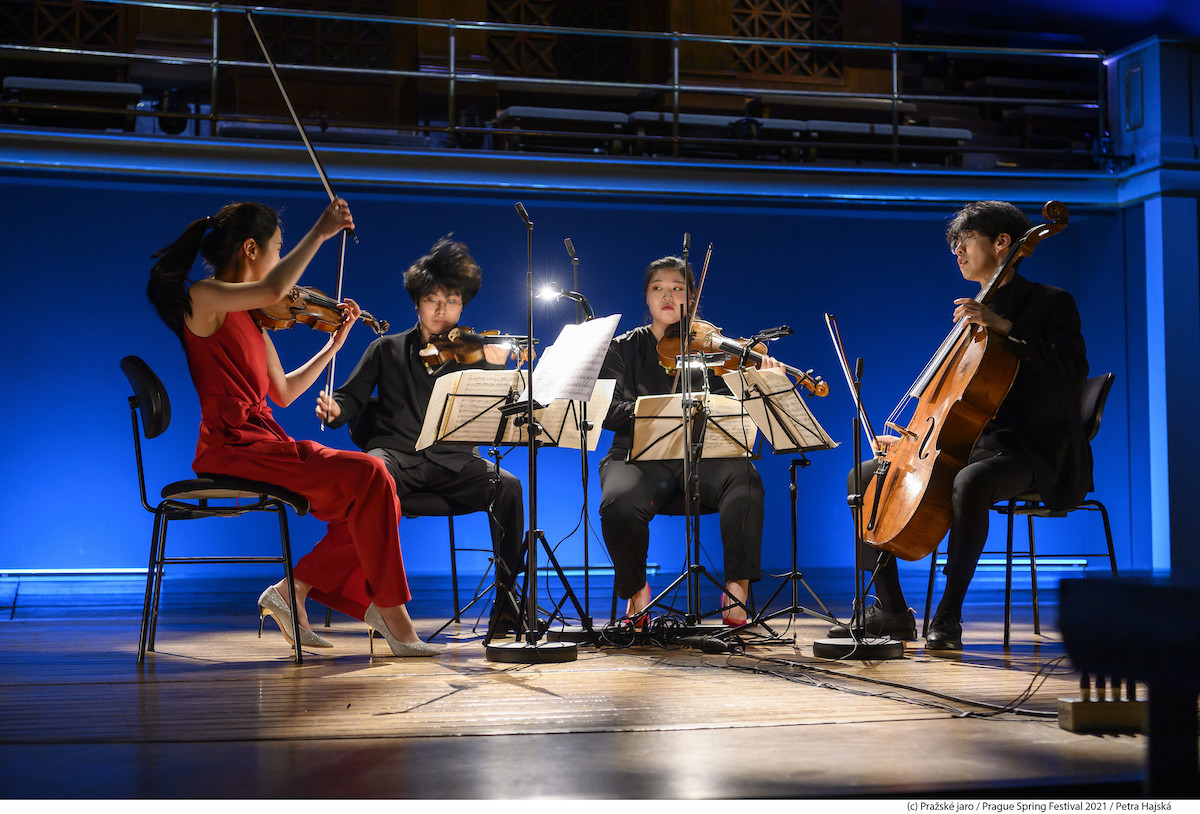
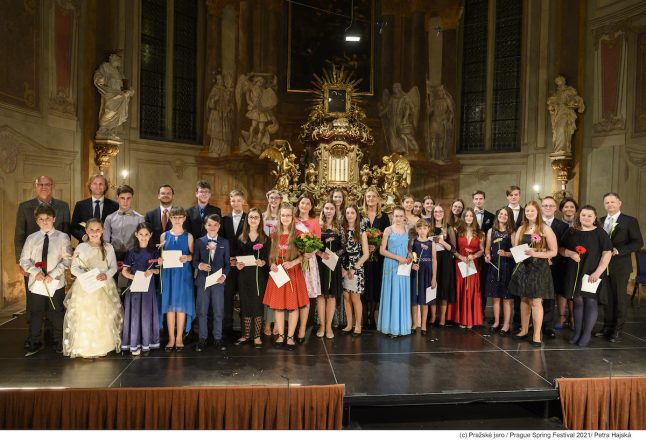
The Festival Supports Young Talents
Besides holding an international music competition, the Prague Spring Festival also makes an effort to support young talents in its main programmes. There were two extraordinarily successful masterclasses given by artists appearing at the festival—the pianist Garrick Ohlsson and the clarinettist Jörg Widmann. They can be seen on the Prague Spring Festival website. The masterclasses got more views than even some of the concerts, which shows the benefit of such projects and the high demand for them.
Once again, the festival presented the programme Salon ZUŠ—a concert given by pupils from elementary schools of the arts, with the introduction of thirty talented young musicians—scholarship winners of the project MenART who spent a year working under the guidance of the mentors Kateřina Kněžíková (soprano), Jan Fišer (violin), Ivo Kahánek (piano), and Jan Ostrý (flute).
A Varied Palette of Genres
“The Prague Spring Festival was greatly pleased and honoured to have the opportunity of holding a concert celebration for Martin Kratochvíl on what happened to be his 75th birthday. He has been a leading figure of Czech jazz and fusion since the late 1960s,” says festival director Roman Bělor. At the DOX Centre for Contemporary Art, he appeared in both types of musical ensemble that are typical for him. First was a jazz trio with the guitarist Tony Ackerman and the drummer Imram Musa Zangi, then in the second half of the programme he played with Jazz Q, a legendary group with Zdeněk Fišer (guitar), Přemysl Faukner (bass guitar), and Filip Jeníček (drums), all of whom are also important musicians in both genres. “We were able to witness Kratochvíl’s unwavering élan for ourselves,” says Roman Bělor.
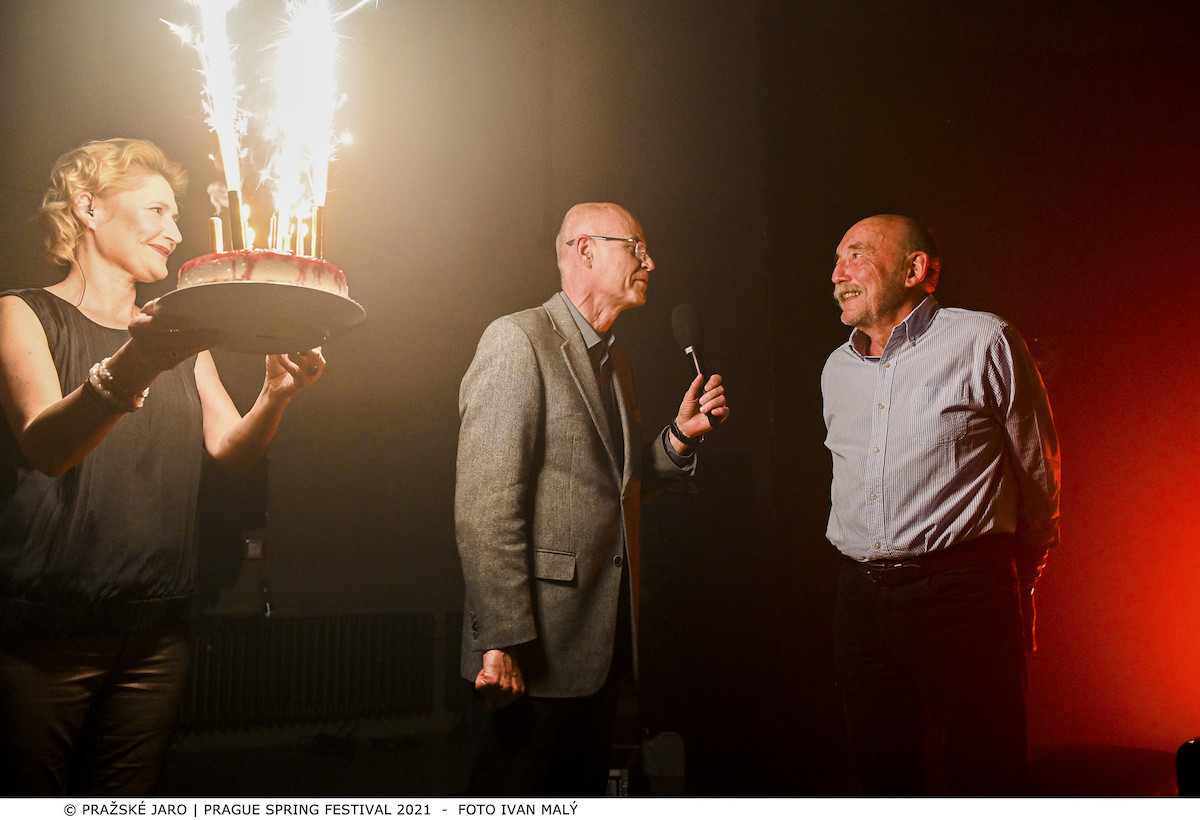
Introducing herself at the festival as a representative of the youngest generation of jazz musicians was the singer Marta Kloučková, who crosses over between jazz and related genres both as a lyricist and a composer. At the concert in the Mercedes Forum, a popular alternative venue at the Prague Spring Festival, she was accompanied by Vít Křišťan (piano), Jan Fečo (contrabass), and Marek Urbánek (drums). A special guest at the concert was the guitarist David Dorůžka, who has appeared at the Prague Spring Festival before. The core of the programme consisted of numbers from the award-winning album Loving Season (2018) and songs from a forthcoming recording by Marta Kloučková.

Acknowledgement of Our Partners
Last but not least, the festival owes a debt of thanks to its supporters. The Prague Spring Festival could not take place without the support of the Czech Ministry of Culture, the City of Prague, and the companies innogy, CETIN, Subterra, and Mercedes-Benz. We wish to thank our media partners Czech Television, Czech Radio, and the publisher Economia. The agency CzechTourism also contributed towards this year’s festival. We also owe thanks to the individual donors who belong to our patrons club, the Friends of Prague Spring.






